|
Weather of desert
|
|
|
|
|
|
|
Le vent de sable / The wind of sand
Dans le désert le vent va et vient quand il veut, où il veut, comme il veut.
Il a principalement trois styles.
To the desert the wind goes and comes when it wants, where it wants, as it wants.
It has mainly three styles.
|
1er style, le thermique. Celui qui commence à souffler après le lever du soleil lorsque le sol commence à chauffer. Il peut augmenter en intensité dans la journée et va se coucher en fin de journée.
First style : the thermic. The one which begins blowing after the rising of sun when the ground begins heating up. it can increase in intensity during the course of day and is going to lie down at the end of day.
|
|
|
|
2ème style, le vent décide de mettre un peu d’ordre, d’effacer les traces, d’épurer, de faire avancer les dunes. Pour ça, il souffle très fort au ras du sol, bouge et soulève tous les grains de sable, le minuscules, les petits, les moyens, les plus gros. Les dunes deviennent floues.
Pour les humains, le chèche ou alechoum est le seul moyen de se protéger
2nd style, the wind decides to put a little of order, to erase traces, to purify, to move dunes forward. For that, it blows very extremely at the level of ground, moves and raises all grains of sand, tiny ones, small ones, means, the biggest. Dunes become fuzzy.
For the people, the chechia or alechoum is the only means to protect itself.
|
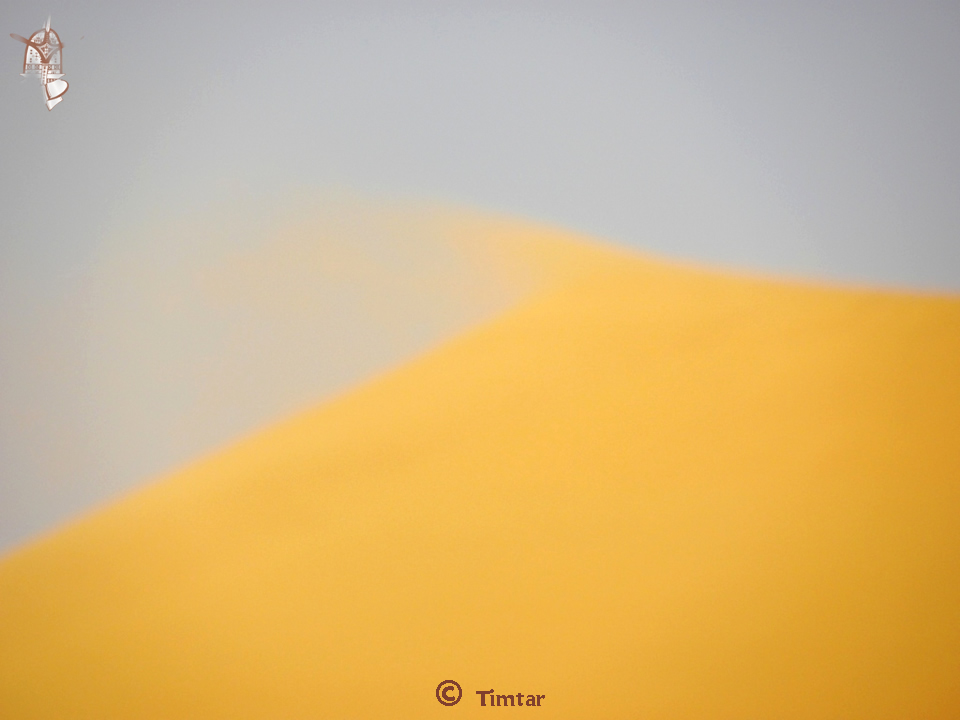
|
|
|
|
|
|
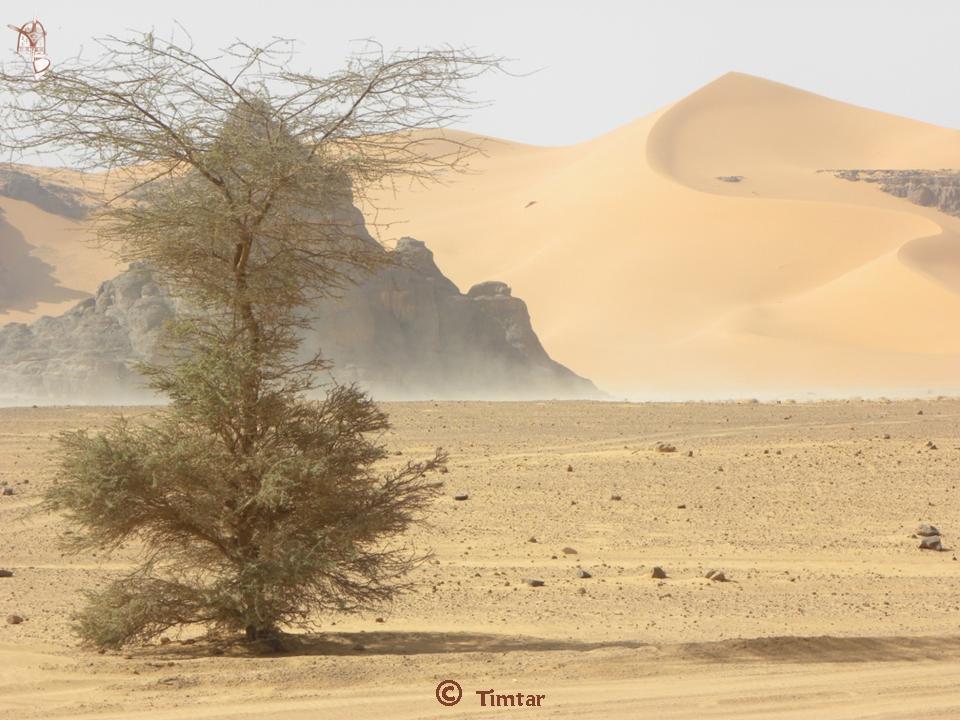
|

|
|

|
|
|
|
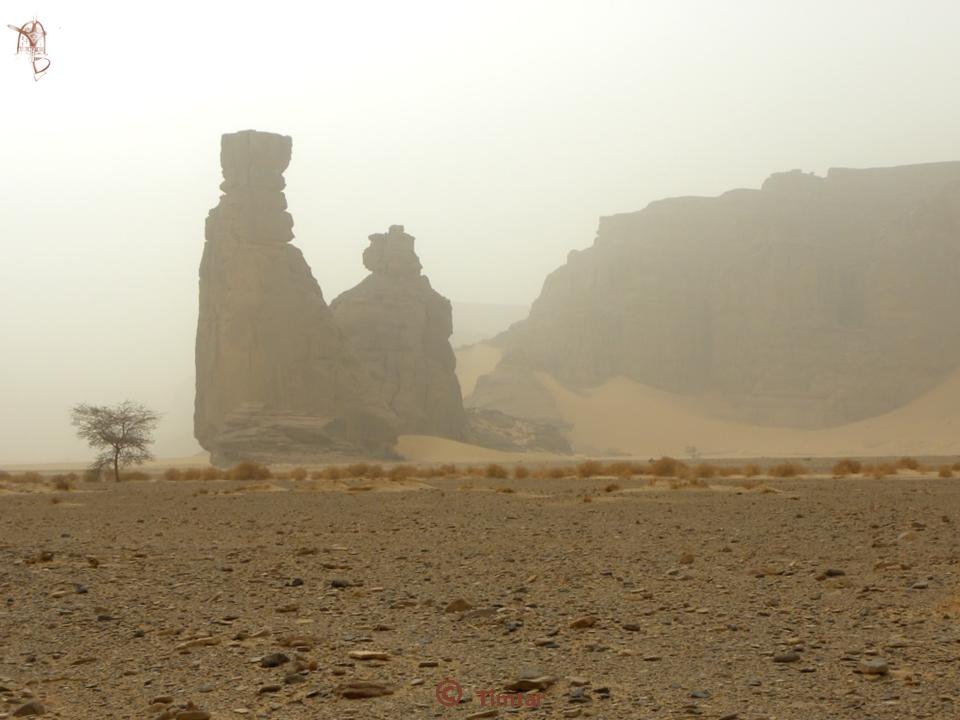
|
Le 3ème style du vent c’est de maintenir dans l’air du sable très très fin qui forme un brouillard qui peut être rouge. Les paysages sont fantomatiques, les tassilis, rochers, arbres apparaissent comme des spectres. Avec tout ce sable dans l’air, les avions évitent soigneusement la zone. Ce qui permet de prolonger les vacances !
The 3rd style of the wind it is to maintain of in the air the very very fine sand which forms a fog which can be red. Landscapes are ghostly, tassilis, rocks, trees appear as spectra. With all this sand in air, planes avoid the zone carefully. What allows to extend holiday!
|
|
|
|
|
|
L’hiver
De décembre à janvier, c’est l’hiver saharien. Dans le massif de l’Ahaggar (altitude jusqu’à 2800 m), les nuits peuvent être glaciales et la température peut descendre jusqu’à - 15° C.
Partout dans le désert il peut faire très froid la nuit (entre 10° et 4°C).
La journée le thermomètre monte jusqu’à 15°, 20° C.
Il peut aussi neiger (comme en janvier 2008 dans l’Ahaggar)
|
|
Winter
From December till January, it is the Saharan winter. In the massif of Ahaggar (altitude until 2800 m), nights can be icy and temperature can go down until - 15 ° C.
Everywhere in the desert it can very be cold at night (between 10 ° and 4°C) .
The day the thermometer goes up until 15 °, 20 ° C.
It can also snow (as in January, 2008 in Ahaggar)
|
|
|
|
Il y avait 50 ans que ça n’était pas arrivé !
50 YEARS AGO THIS HAD NOT ARRIVED !
|
|
|
|
Neige / Snow
Ahaggar 8 janvier 2008
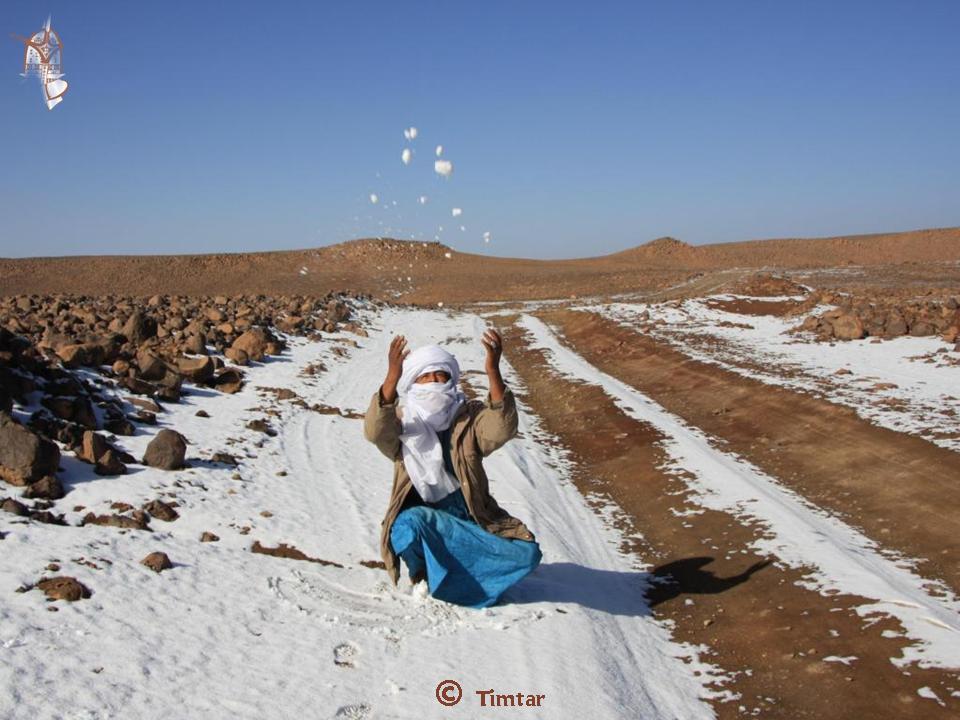
|
Neige / Snow
Ahaggar 8 janvier 2008
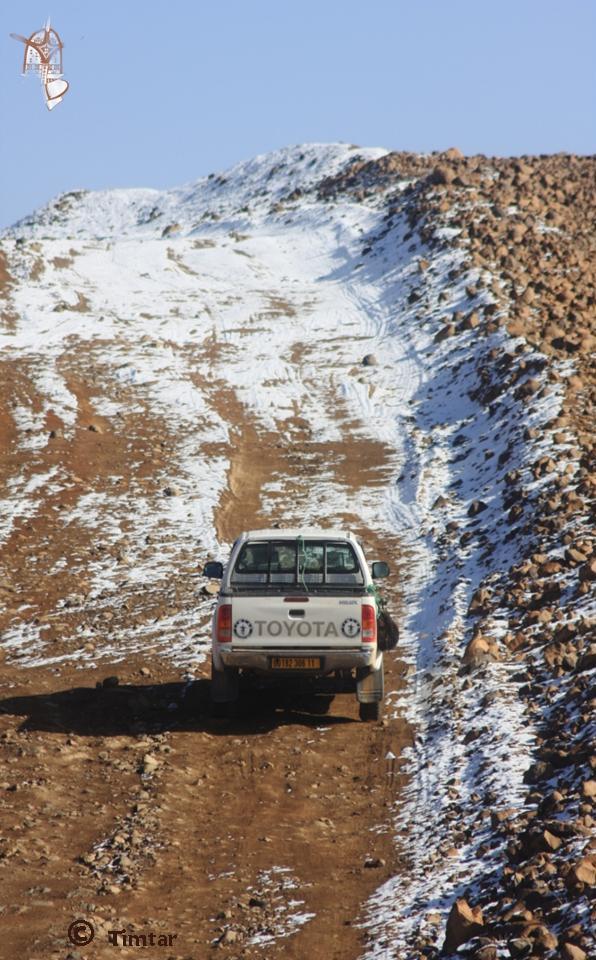
|
|
|
|
|
|
Neige / Snow
Afilal Ahaggar 8 janvier 2008

|
Neige / Snow
Ahaggar 8 janvier 2008
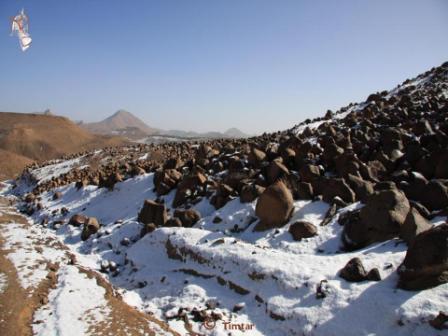
|
|
|
|
Neige / Snow Afilal Ahaggar 8 janvier 2008
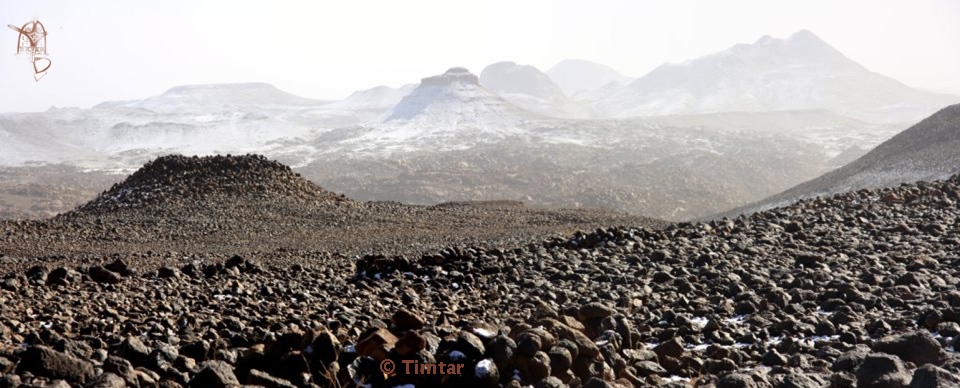
|
|
|
|
L’été
Passé le grand froid de l’hiver, les températures se situent entre 20° et 35° C la journée pour la région de l’Ahaggar.
Les personnes supportant mal la chaleur éviteront de voyager dans le désert de juin à août (+ de 35°C la journée). Dans le massif de l’Ahaggar les voyages peuvent de faire même en été.
C’est en été aussi que viennent plus facilement les pluies. Elles viennent du Sud et aussi de courants atlantiques qui arrivent à pousser depuis l’Ouest l’anticyclone quasiment permanent installé sur le Sahara.
|
|
Summer
After the big cold of the winter, temperatures are between 20 ° and 35 ° C the day for the area of Ahaggar.
The persons supporting heat badly will avoid travelling in the desert from June till August (+ of 35°C the day). In the massif of Ahaggar trips are possible in summer.
It is also in summer that rains come more easily. They come from the South and also Atlantic currents which succeed in pushing since the West the practically permanent anticyclone installed over the Sahara.
|
|
|
|
Vent de sable
Wind of sand
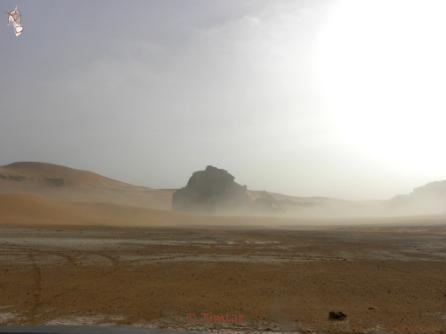
|
Oued Tamanrasset
Wadi Tamanrasset
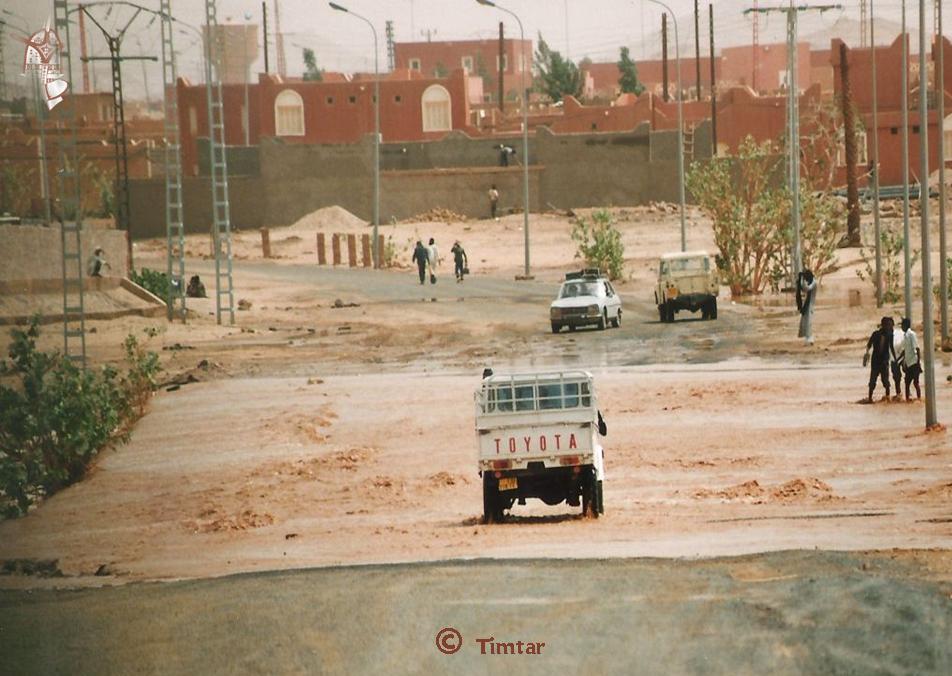
|
Brume de sable
Fog of sand
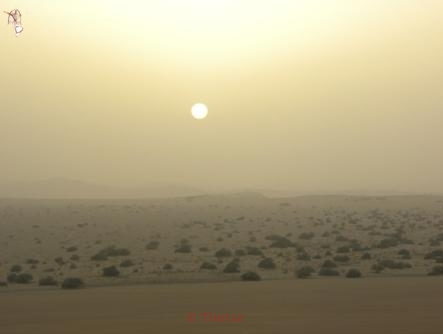
|
|
|
|
|
|
|
|
|
|
Orage sur l’Atakor / Storm on Atakor
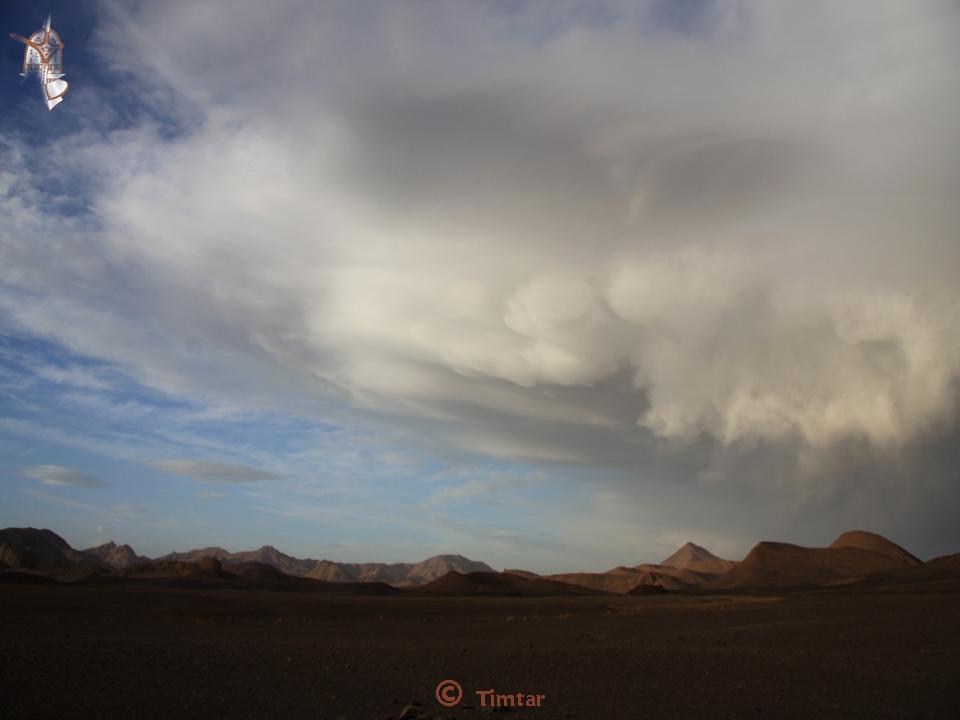
|
|
La météo * WEATHER
L’anticyclone est-il toujours installé sur le Sahara algérien ?
Quelle température pour votre voyage ?
Quelle hydrométrie ?
Vous pouvez suivre dès maintenant et en direct les nouvelles fraîches du temps qu’il fait
Is the anticyclone always installed on the Algerian Sahara?
Which temperature for your trip?
Which hydrometry?
You can follow from now on line fresh news of weather for all the Algerian Saharan area
|
|
|
|
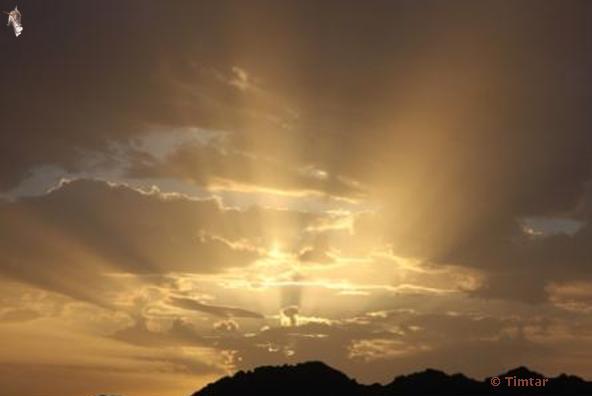
|
|
Le temps au quotidien
(les températures sont en bas de page)
Daily weather
(temperatures are at the bottom of page)
http://www.meteo.dz/
http://monde.lachainemeteo.com/meteo/tamanrasset/algerie/prevision
_meteo_tamanrasset_algerie_ville_8575_0.php
Animation satellite
Satellite animation
http://fr.allmetsat.com/images/afwa_msg_medit_ani.php
Vent et hydrométrie (cliquez sur les points)
Wind and hydrometry (click on points)
http://fr.allmetsat.com/metar-taf/algerie.php?icao=DAAT
|
|
|
|
|
|
|
|
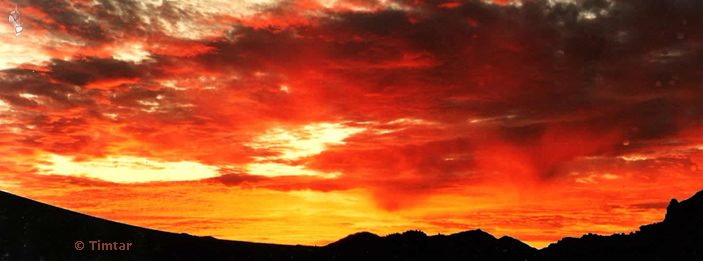
|
|
|
|
|
|
|
|
|
|
|
|
|
|
|
|
|





















